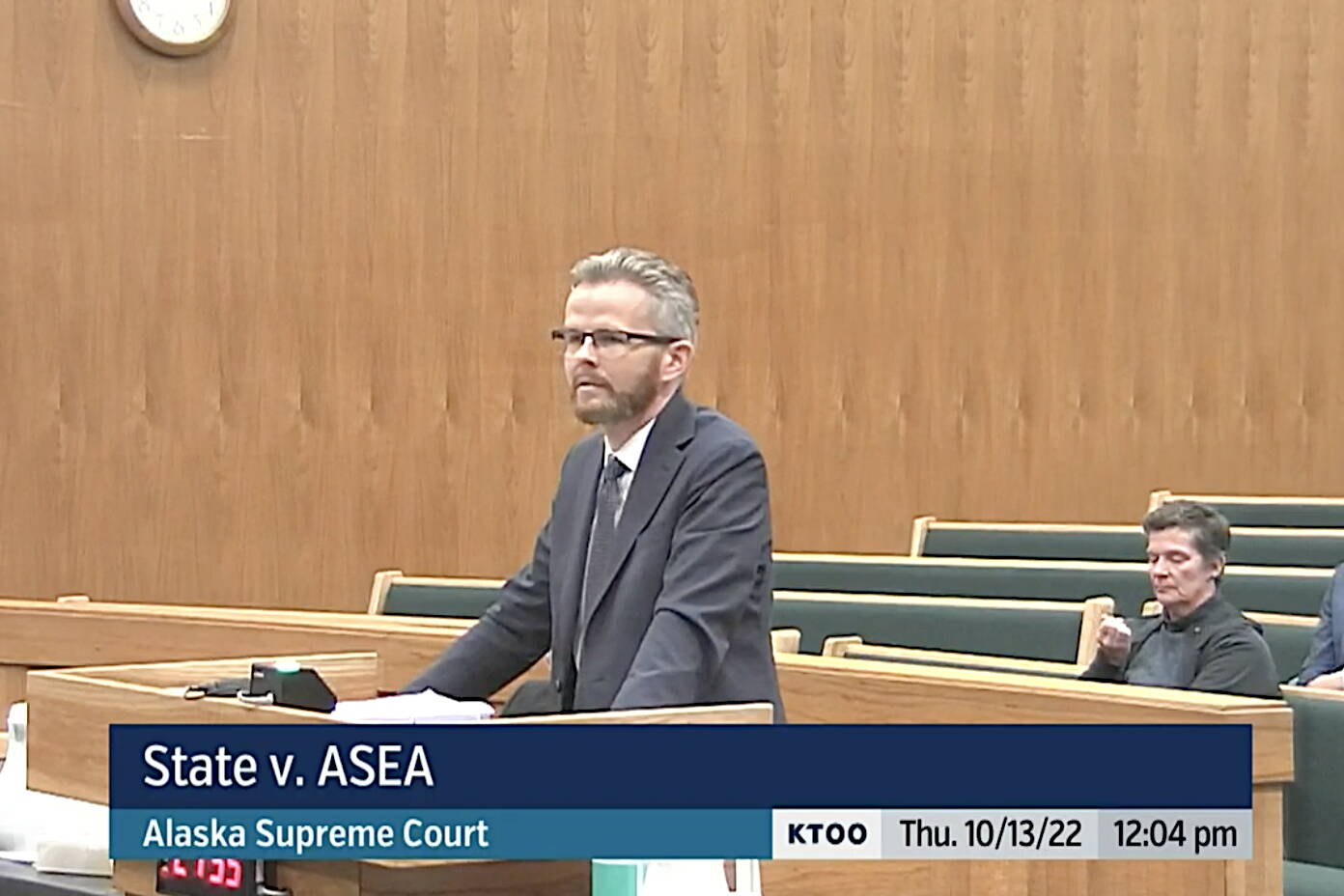A lower court ruling that the Dunleavy administration acted illegally by unilaterally changing union-dues rules for state employees was upheld Friday by the Alaska Supreme Court.
The court awarded the Alaska State Employees Association nearly $450,000 in damages, legal fees and interest for its lawsuit against Gov. Mike Dunleavy and officials in his administration, stemming from a 2019 executive order by Dunleavy requiring employees to opt in to union membership via a form filed annually with the state. That prevented the union from automatically collecting dues from paychecks of its roughly 8,000 member employees.
The order was based on a 2018 U.S. Supreme Court decision government employees can’t be forced to contribute to labor unions representing them in collective bargaining.
An Anchorage superior court judge ruled in 2021 that Dunleavy’s order violated the state’s contract with the union and the Alaska Constitution, awarding damages of $186,000. The state appealed the case to the state Supreme Court, which heard arguments in October.
“This decision makes it clear that the governor, attorney general and commissioner of administration were wholly motivated by political calculus and anti-union hostility, rather than sound legal footing,” said Heidi Drygas, executive director of ASEA Local 52, in a news release issued immediately after Friday’s ruling. “It backfired. By pursuing this meritless legal action, the Governor and members of his administration wasted public resources to the tune of millions of dollars rather than invest in the critical public services and public employees that are needed to carry them out.”
The union argued that the federal case — generally known as Janus — applied only to non-union workers required to pay fees to unions, but attorneys for the Dunleavy administration argued the decision also covers union members by implication. Attorney General Treg Taylor, in a prepared statement Friday, said he believes the U.S. Supreme Court needs to clarify the matter.
“For the state this case is about protecting the First Amendment rights of public sector employees,” he said. “While the decision from the Alaska Supreme Court was disappointing it was not surprising as clarification in regard to the Janus decision ultimately has to come from the United States Supreme Court given its federal constitutional underpinnings. We are hopeful that we can get clear guidance from this court in order to make sure state action does not jeopardize individual liberties.”
Friday’s ruling declares the administration’s position has “three major flaws.” In addition to the Janus case applying only to nonmember public employees, it also doesn’t require the state to implement opt-out rules and that employees are allowed sufficient First Amendment protection in merely deciding to join a union without the requirement for an annual formal declaration with the state.
’• Contact Mark Sabbatini at mark.sabbatini@juneauempire.com or (907) 957-2306

